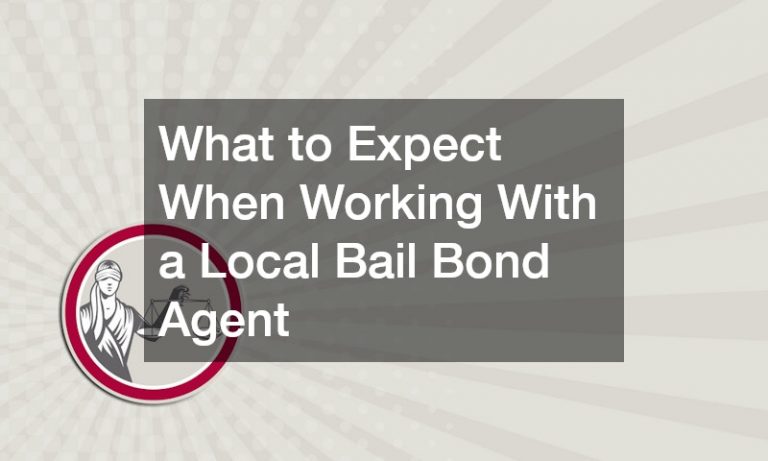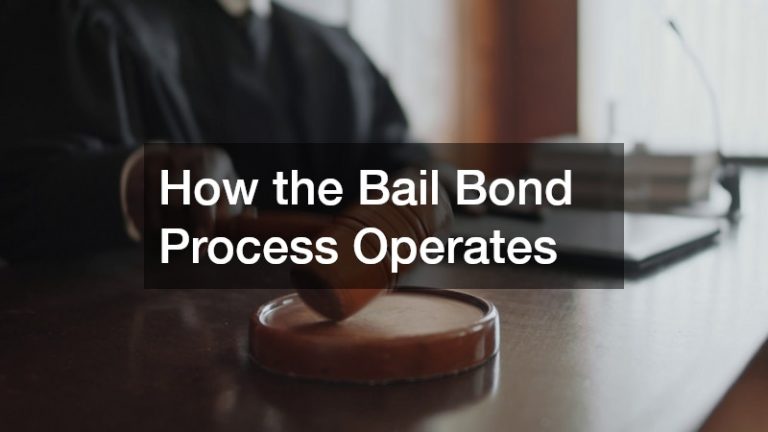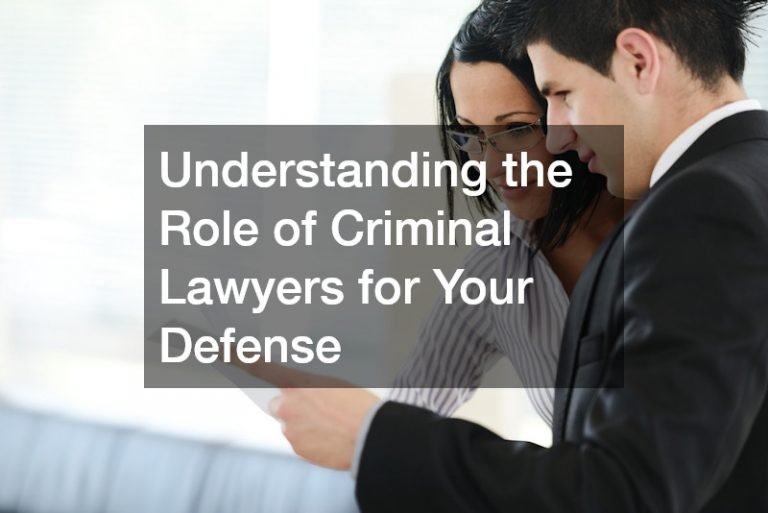
Facing a felony charge is an overwhelming experience, not only because of the serious nature of the accusation but also due to the financial burden it can bring in the form of bail. Bail serves as a fundamental component of the justice system, ensuring that defendants appear for their court hearings. However, when set excessively high, it can become an insurmountable obstacle, compromising the ability of the defendant to prepare an adequate defense.
This article guides you through the process of seeking a bail reduction if you’ve been charged with a felony. It explores strategies that can ease the financial strain and provide you with an opportunity to focus on building a solid defense. Understanding the nuances of bail procedures and how they relate to felony criminal defense is essential in navigating this challenging period.
From understanding your legal options to exploring how a felony criminal defense lawyer can assist you, this comprehensive guide covers all aspects of requesting a bail reduction. It provides clarity on alternatives to traditional bail, and strategies to help relieve the stress associated with facing such serious legal challenges.
How to Request Bail Reduction After Being Charged with a Felony
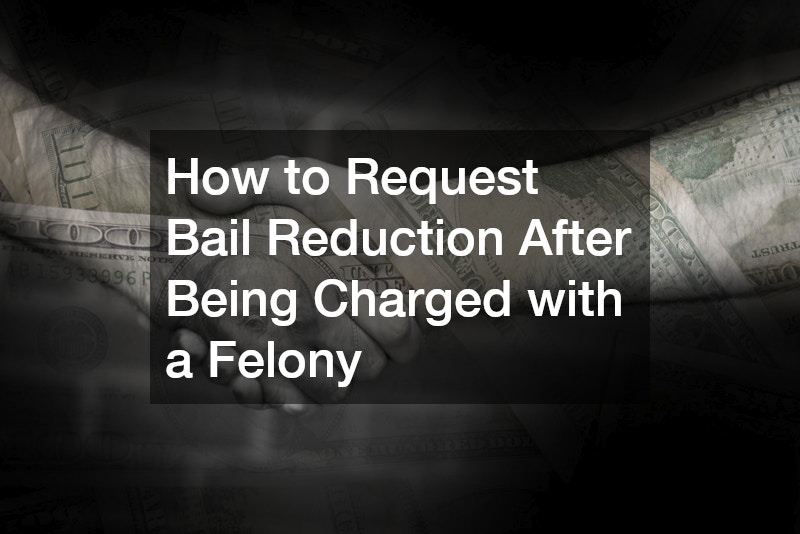
Requesting a bail reduction involves several critical steps, and the first is understanding the legal framework surrounding bail in felony cases. Bail is determined by the severity of the charges, criminal history, and risk of flight. Engaging a criminal lawyer who specializes in felony cases can provide you with tailored guidance and increase your chances of securing a fairer bail amount.
Once you secure legal representation, they will file a motion for a bail reduction on your behalf. This motion will cite reasons why the current bail is excessive or unjust, considering your circumstances and the nature of the alleged offense. It’s essential that the arguments for bail reduction emphasize your ties to the community and your commitment to attending all court appearances.
In some instances, the court may require a hearing to determine if the bail reduction is warranted. During this hearing, your criminal attorney presents evidence and arguments supporting the motion. Their expertise in presenting a persuasive case can be pivotal in attaining a bail reduction, allowing you to allocate resources more effectively towards your felony criminal defense.
Understanding Your Bail Options: What to Do If You’re Facing Serious Criminal Charges
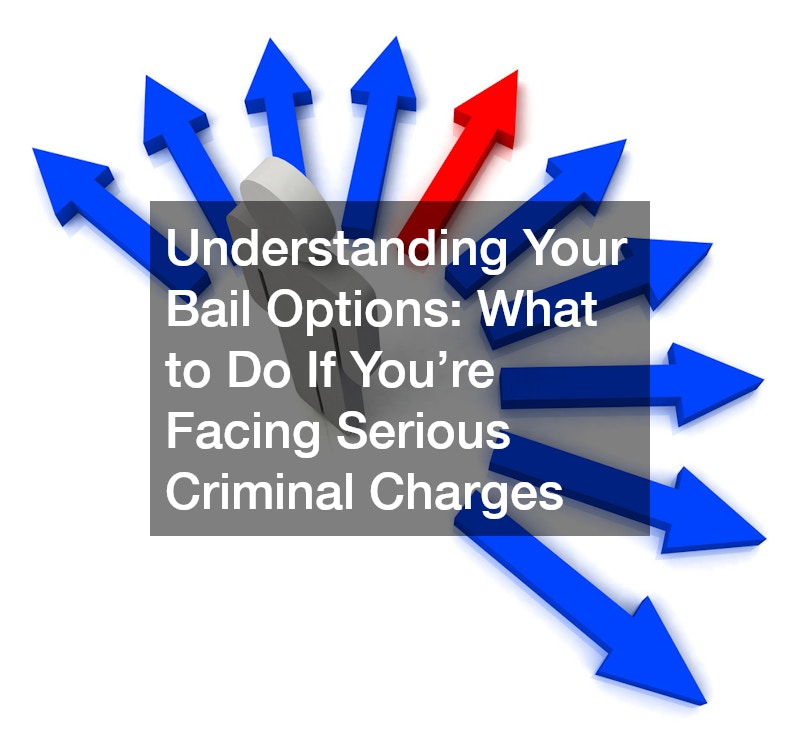
When charged with a serious crime, it’s crucial to understand all available bail options. Aside from traditional cash bail, surety bail bonds are an alternative that involves third-party guarantees from a bail bond agency. This type of bond allows a 24 hour bail bondsman to post bail on your behalf, offering financial relief if cash bail proves too burdensome.
Surety bail bonds involve paying a small percentage of the total bail amount to a bondsman, who assumes responsibility for the full bail if you fail to appear in court. This arrangement can provide peace of mind when navigating an already stressful situation, as it requires less immediate financial output. Consulting with your criminal lawyer will help you determine if this option is suitable given your case specifics.
Additionally, discussing alternative conditions with your criminal attorney might lead to opportunities for release on personal recognizance or unsecured bond. These alternatives to cash and surety bonds can ease financial strain, but they depend on a strong legal argument supporting your non-flight risk and commitment to court appearances. Your chosen criminal defense lawyer will analyze and advise on which route best suits your needs based on the case details.
What Happens If You Can’t Afford Bail: Exploring Bail Reduction Strategies
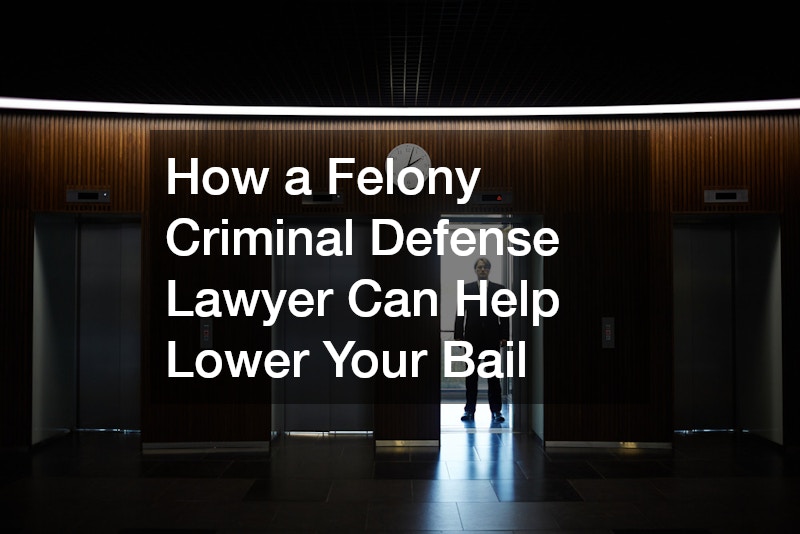
If affording bail becomes an issue, exploring bail reduction strategies is vital for sustaining your defense preparations. Start with a thorough assessment of your financial situation in collaboration with your assault lawyers, who can assist in crafting a compelling argument for bail reduction. Emphasizing the inability to pay the current bail amount is a strategic approach, particularly if it restricts your fundamental rights and defense capability.
One strategy employed is providing evidence of significant community ties such as employment, family, and involvement in local organizations, demonstrating that you pose minimal flight risk. In criminal law firms, leveraging this evidence with expert testimony from character witnesses can strengthen your bail reduction request. An experienced defense attorney will ensure that your motion highlights these factors effectively in court.
Exploring non-traditional bail alternatives is another viable strategy. Your criminal lawyer might negotiate for electronic monitoring, offering periodic check-ins as a substitute for cash bail. The anticipated goal of any bail reduction strategy is to obtain a manageable bail amount or alternative measures that allow you to remain free while navigating felony charges.
How a Felony Criminal Defense Lawyer Can Help Lower Your Bail
Felony criminal defense attorneys play a critical role in lowering bail by leveraging their expertise and legal acumen. A skilled criminal attorney evaluates the weaknesses in the prosecution’s case, using them as leverage in arguing for reduced bail. This tactical approach underscores the importance of having experienced legal representation in serious criminal matters.
Attorneys from reputable criminal law firms will also prepare and support comprehensive bail reduction motions with detailed evidence and legal precedents. They navigate procedural complexities that might otherwise challenge those unfamiliar with criminal proceedings. Their credibility and insights into judicial preferences significantly increase the likelihood of a successful bail reduction.
The presence of a seasoned defense lawyer conflates credibility to your court appearances. Their role extends beyond advocacy to advising on feasible bail options such as securing the services of a reputable bail bond service. The ultimate goal remains to protect your rights while facilitating the best possible conditions for preparing a robust defense.
When and How to Ask for Bail Reduction in a Felony Case
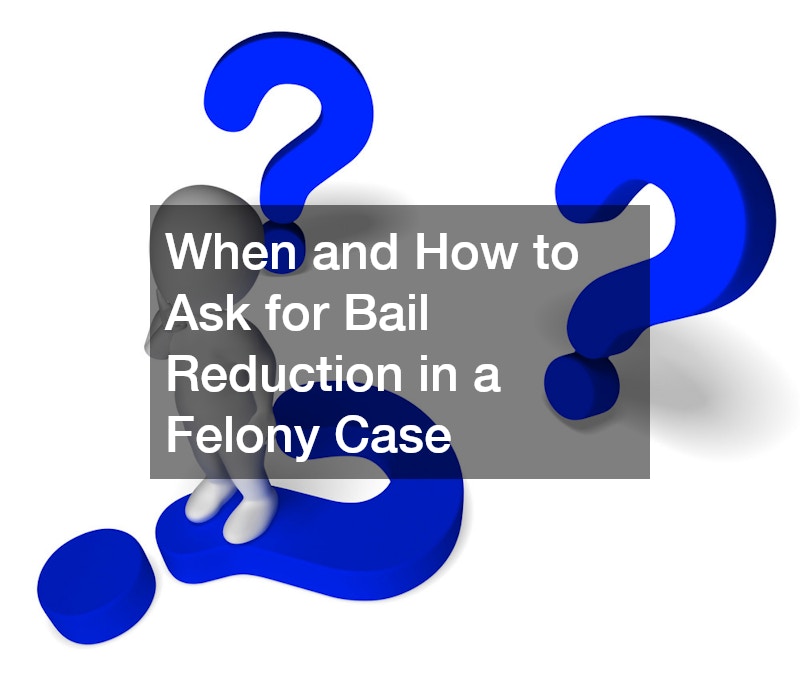
Timing is paramount when requesting bail reduction in a felony case, with immediate initiation upon setting bail being critical. The earlier the request, the sooner the opportunity to present pertinent information and arguments favorably impacting the decision. Your criminal lawyer can guide you on optimal timelines and prepare accordingly to maximize the chances of success.
The procedure for asking for a bail reduction involves submitting a formal motion detailing reasons why the current bail is unjust or excessively harsh. Reviewing similar cases and highlighting mitigating factors, such as minor criminal history or support network, further expedites the request. Such diligent preparation undertaken by your lawyer is indispensable throughout the process.
Finally, responding timely to any court requests for a bail hearing is crucial. Whether it involves coordinating with your bail bond agency or presenting additional documentation, being proactive can positively influence the court’s perspective of your request. As with every aspect of your felony criminal defense, collaboration with knowledgeable legal professions ensures all procedural requirements are met promptly and efficiently.
Factors That Can Lead to a Successful Bail Reduction Request in Serious Cases
Several factors contribute to a successful bail reduction request, notably the nature of the alleged offense and personal history. Demonstrating minimal risk to society and a manageable flight risk enhance your credibility in the court’s eyes. Your criminal attorney will methodically present these elements to portray you in the best light possible.
Evidence of strong community ties serves as a compelling factor in bail reduction requests. Highlighting commitments such as stable employment, familial responsibilities, and educational pursuits validates arguments about your intentions to comply with court obligations. Additionally, leveraging testimonies from community leaders and employers can substantiate claims of being a reliable community member.
Finally, cooperation with law enforcement and active participation in the legal process convey your commitment to resolving the case. Displaying remorse or accountability where applicable further supports prospects of receiving a lower bail. These factors, skillfully communicated by your assault lawyers during hearings, significantly enhance the chances of bail reduction.
How to Prepare for Your Bail Hearing: Tips for Reducing Bail in a Felony Case
Preparing for your bail hearing involves thorough preparation, both legally and personally, to ensure the strongest case is presented. Your criminal defense lawyer will outline the key strategies and supporting evidence required for persuading the judge to consider lowering your bail.
Documentation of financial status, evidence of community ties, and personal commitments should be meticulously organized and available for your hearing. Having a reputable bondsman or bail bond service representative ready to speak on your behalf is also advantageous. This comprehensive approach increases the likelihood of receiving favorable bail conditions.
Beyond legal preparation, presenting yourself professionally during the hearing plays a crucial role. Appropriateness in attire and demeanor during proceedings creates a positive impression on the judge and other stakeholders. Combined with your lawyer’s legal expertise, these preparations contribute to advancing your felony criminal defense effectively.
What a High Bail Means for Your Felony Defense: Navigating Financial and Legal Challenges
High bail can pose significant challenges not only financially but also legally, impacting your ability to engage fully with the legal system in your defense. An exorbitant bail amount can divert crucial resources that would otherwise fund a competent felony criminal defense. Understanding the implications of high bail is crucial in strategizing your approach to tackling these legal and financial hurdles.
Financial constraints from high bail might impede your ability to employ a skilled criminal attorney, deteriorating your defense quality. Furthermore, working with a limited resource pool can restrict exploring expert witnesses or secure specialized testimony, often pivotal in criminal cases. Confronting this challenge head-on with your lawyers to assess how best to balance these needs is paramount.
On the legal front, ongoing detention due to inability to post bail affects your capability to participate actively in building your defense. The psychological toll of remaining in custody can diminish focus and morale, hindering effective communication with your legal team. Collaborating with a bail bond agency might offer provisional relief, providing you with time and freedom to prepare comprehensively for upcoming legal phases.
Can You Be Released on Your Own Recognizance? Alternatives to Bail in Felony Cases
Being released on your own recognizance in felony cases is an alternative depending on judicial assessments of flight risk and community safety. This option involves no monetary bail, relying instead on the person’s word to attend court hearings at scheduled times. This release presents unique opportunities to divert funds towards implementing a more strategic felony criminal defense.
Circumstances warranting release on one’s own recognizance typically require demonstrating strong community ties, consistently positive character, and minimal threat to public safety. It is within your criminal defense lawyer’s prowess to articulate these factors convincingly before the judge. Successful arguments that mitigate fears of non-compliance increase the odds of this form of release.
Other alternatives might include adjusting bond conditions to include non-monetary terms like limited travel or mandatory check-ins. Tools like this allow defendants the freedom to communicate effectively with their lawyers and prepare adequately for the defense. Legal advice is essential in understanding and pursuing such alternatives within the framework of your case.
How Bail Reduction Can Help You Prepare for Your Defense and Stay Out of Jail
Bail reduction plays a pivotal role in facilitating complete and effective defense preparation. Lowering bail not only provides immediate financial relief but significantly affects the ability to engage with legal counsel without the constraints of incarceration. It offers a steadier latitude in allocating time and resources toward your defense strategy.
When not confined to custody, a defendant can take advantage of interviewing potential witnesses, investigating evidence independently, and strategizing legal approaches with their attorney. All these aspects contribute to a more robust and attentive felony criminal defense. Reduced stress from reduced financial pressure can considerably sharpen focus and communicate understanding throughout the proceedings.
Moreover, staying out of jail contributes to maintaining employment and sustaining family roles, both essential for mental stability and resource management. By reducing bail earlier in the legal process, the opportunity emerges to balance defense commitments with everyday responsibilities, strengthening the overall defense framework.
Dealing with the Stress of High Bail: How to Take Action in a Felony Case
The stress of high bail can feel overwhelming, particularly amid serious felony charges. Taking proactive action, however, is essential to countering this pressure. Collaboration with your criminal lawyer is the initial step towards establishing a feasible approach to seeking bail reduction or reevaluating conditions affecting your case.
Exploring financial assistance through bail bond service entities offers immediate reprieve from daunting monetary demands. Bondsmen offer innovative solutions and relieve undue economic strain while ensuring compliance with necessary legal obligations. Working in tandem with a trustworthy bail bond agency, this option restores agency over contingent circumstances.
Addressing emotional strain associated with high bail also involves accessing support systems, whether through family, friends, or professional mental health resources. Regular consultations with your attorney and reassessing strategic defense methods ensure the focus remains aligned against the legal challenges instead of being immobilized by financial stresses.
The Legal Steps to Take If You’re Denied Bail or Bail Reduction in a Felony Case
If denied bail or a request for reduction, it’s vital to understand your legal avenues and next steps. Begin by consulting with your criminal attorney on the reasons behind the decision and assess feasible adjustments to your strategy. Analyzing the judge’s objections provides clarity for future motions or appeals where applicable.
Your criminal lawyer can draft and file an appeal or a follow-up motion for reconsideration, supported with strengthened evidence and adjusted arguments. Given the seriousness of felony charges, meticulous preparation of supporting documents and testimonies is critical to sway decisions positively during appellate processes.
Simultaneously, exploring alternative release options such as monitored probation or participation in rehabilitation programs might yield favorable conditions. These provide component-based release solutions that align with specific judicial requirements, allowing more proactive contributions toward your felony criminal defense efforts.
Real-Life Scenarios: How Bail Reduction Helped Others Facing Felony Charges
Real-life cases abound, illustrating how strategic bail reductions have favorably impacted individuals facing felony charges. Consider the case where a defendant, initially charged with aggravated assault and facing prohibitive bail, utilized the expertise of top assault lawyers to present strong civic ties and character testimonies. The bail reduction granted them the freedom to work closely with their team in preparing a defense, which ultimately led to a successful trial outcome.
Another scenario involved a young professional with limited financial means who turned to a reliable bail bond agency. The agency facilitated surety bail bonds which not only secured their temporary release but enabled consistent collaboration with their criminal defense lawyer. This provision coupled with evidence of stable employment led to negotiated plea deals, mitigating overall penalties.
Those cases highlight the profound impact of efficient bail handling, underscoring the necessity of professional legal involvement. By tailoring strategies to specific circumstances, skilled lawyers enhance process navigation, culminating in results often altering the course from unfavorable impositions to carefully crafted legal victories.
Understanding and navigating bail processes in felony cases is an indispensable skill of effective felony criminal defense. From initiating discussions with experienced criminal lawyers to collaborating with bondsmen, the multifaceted approach to reducing legal and financial strain prompts proactive strides toward securing favorable case outcomes. Faced with daunting bail amounts, strategically engaging each aspect of the legal framework enhances defendants’ prospects while avoiding onerous impositions.
Complete preparation for bail hearings, expounding influence of supportive evidence, and articulate advocacy are powerful tools in securing meaningful adjustments to bail conditions. By maximizing these resources, defendants foster stable environments conducive to robust defense preparation and sustained life stability.
Remaining informed of available options, from surety bail bond alternatives to non-traditional relief measures like recognizance releases, further empowers assertive engagement with the justice system. Ultimately, each strategic decision shapes how effectively defendants navigate the complex juncture of felony charges and their associated requirements.
